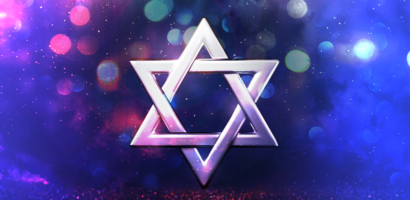Our world is full of a wide variety of colors, smells and landscapes. Mountains, desserts, amazing green fields and breathtaking turquoise lakes. Beaches with phenomenal sunsets, places where snow is just beautiful, trekking that shows you animals you thought only existed in novels and a lot, lot more.
This small but huge country offers its visitors all of this, and so much more. But in order to have a successful outdoor experience in the Land of Milk and Honey, we offer you the chance to learn some words and some new vocabulary for you to get through the whole experience.
From the lovely sunsets at the Arava to the outstanding sunrises in the Hermon, we bring you a few nature-related words in Hebrew. Is your equipment ready to go on a road trip around Israel? We assure you that after this article, you’ll be craving one.
Nature-related vocabulary in Hebrew: The ultimate way to experience a long road trip
Now, we want to provide you with these nature-related words in Hebrew. As soon as you learn them, be sure to wear something suitable for the trip and get ready to have the time of your life. Please note: This time, we are going to focus our list on the “flora” part of nature, but don’t worry! We are already preparing a list of animals and fauna in Hebrew.
Lake: Lake in Hebrew is אגם (pronounced ah-gum, and also a modern Hebrew name), and even though nothing compares to the beauty of the אגם “Todos los Santos” in southern Chile, in Israel you’ll be able to navigate and swim in some beautiful spots too. We truly recommend visiting the Hula Valley, near Rosh Pinna, and enjoying the breathtaking landscapes it offers.

River: River in Hebrew is נהר (pronounced: nah-har), and you will find tons of them all over Israel. For you to enjoy a beautiful (and very central) one, we recommend you go visit Hayarkon park, sit in front of the Yarkon River, and enjoy a romantic and very simple evening. If after that relaxing moment you’re looking for more things to do, take a look at this list of things to do in Tel Aviv in 48 hours. You won’t regret it!

Mountain: It sounds similar to river, but shorter. Mountain in Hebrew is הר (pronounced: har). Believe it or not, you’ll see tons of them even in the desert, and that is exactly where we want to send you this time. Right behind the wonderful Kibbutz Ketura, 20 minutes away from the popular and fun Eilat, you’ll find a whole lot of desert-style mountains that will leave you with your mouth open.
Even more than that, the look of it and its surroundings will give you a glimpse of the past, and you’ll be able to imagine how our people felt waiting for Moses under Mt Sinai.
On the other hand, if you are looking for mountains to go skiing, the Hermon is your place. Grab your car, leave the dry south behind and get ready to drive a for a few hours to the green north. More הרים will be waiting for you!

Beach: Just like we mentioned in the article where we taught you Summer Vocabulary, we now mention again how to say beach. Beach in Hebrew is הים חוף (pronounced: chof ha-yam), and it literally means “beach of the sea”. So, can you already guess how to say “sea”? If you know the answer write it in the comments below.
Regarding a beach, we can recommend a few, beautiful places to go in Israel. You can start your trip at the beach Palmahim, near Rishon leZyion and Nes Tziona. From there, if you feel like travelling up north, all of the beaches near Olga, a bit past Herzliya will offer you more than just one gorgeous sunset.

Snow: We don’t have a lot of this in Israel, but it is very important for you to learn how to say it. Snow in Hebrew is שלג (pronounced: sheh-leg). There’s not a single doubt! If it is snowing all over the country (most likely, this won’t happen), the first place you need to go to is Jerusalem’s old city. There are few things more breathtaking than the Western Wall covered in snow. Give it a try! It will be חבל על הזמן.

Subscribe to our newsletter
Learn Hebrew slang, take a virtual tour across Israel, discover the best local food and so much more
Tree: Israel is one of the countries of the world with the highest amount of trees per-capita. Also, the experience and technology of the Israeli forests have allowed Israel to be in charge of many afforestation processes all over the globe. Tree in Hebrew is עץ (pronounced: etz). You’ll see thousands of them all over the country, and you could even try planting your own עץ in whatever יער you liked the best. Then, you’ll only be missing the book, and the children.

Desert: Never forget that only a few decades ago, almost the entire State of Israel was a desert. Today, skyscrapers, huge highways and enormous parks and green areas are occupying the same spaces that use to be pure sand. Desert in Hebrew is מדבר (pronounced: meed-bar) and one of the most beautiful parts of it is located in the area of Mitzpe Ramon. In case you are looking for a more mystical-spiritual place, don’t you miss the one and only Israeli Ashram, called אשרם במדבר.

Learn Hebrew today and discover the phenomenal landscapes of the world tomorrow
Even if you’re not planning on visiting Israel in the next few months, these Hebrew words will always be useful! You never know when you are going to see Israeli tourists around your city asking for the nearest הר or the closest חוף הים.
Begin your Hebrew classes today in our live online courses. Learning Hebrew has never been so easy and comfortable. Are you ready for this new adventure?







 Available on WhatsApp
Available on WhatsApp
Join the conversation (No comments yet)